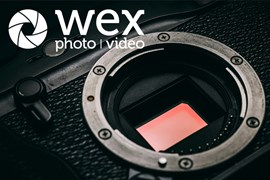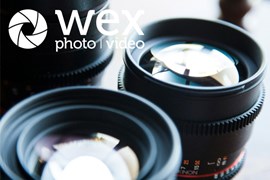
For many of us, photography is a hobby. It’s something we do to relax, it’s a pursuit we enjoy improving at, or it may even be something we hope to turn into a career. Many of our customers over the years have told us that photography helps them de-stress, that it distracts from negative thoughts and encourages a meditative state of mind. It has even been shown to help with PTSD.
This is the thinking behind a project launched last year in conjunction with the National Academy of Social Prescribing (NASP), titled “Photography on Prescription”. It was a pilot program to make photography accessible through social prescribing, to help give people with mental health difficulties access to photographic resources including equipment and masterclasses.
The goal was to find ways we can help people who are struggling with their mental health, to use photography as a means of getting us talking about our day-to-day issues, and to help foster a community of people who find photography helpful in some way.
Let’s take a closer look at how it all worked.
What is social prescribing?
First off, “social prescribing” may be a term you’re unfamiliar with, but it’s actually a pretty simple concept. “Social prescribing typically involves a GP or other healthcare professional referring a patient to a link worker who works closely with that person to understand the issues that are affecting their health and wellbeing,” says Charlotte Osborn-Forde is Chief Executive of the National Academy for Social Prescribing.
“From there, the link worker supports that person to develop a plan, which could include getting practical support for housing or debt, or taking part in activities like gardening, dance, cooking, painting or, thanks to initiatives like this, photography.”
In essence, it’s about helping someone with mental difficulties by finding out what pursuits or activities they find helpful, then connecting them with the means to engage in them. It is, when you boil it down, a pretty simple idea. If someone finds painting helps with their depression, you get them a brush, some paints and an easel. If someone else copes with their anxiety by cooking, you might find a cooking class where they can connect with like-minded people. And if someone finds that taking photographs helps them deal with their stress – well, that’s where we came in.
In our case, we were trying to make it easier for patients who find that photography helps them to access the resources, expertise and equipment they need to get the most out of it. NHS doctor and mental health ambassador Dr Alex George is a big advocate for this approach, saying: “Social prescribing can boost self-esteem and improve your mental wellbeing.”
Dr Alex is also backed our “Photography on Prescription” programme. He told us: “Having recently taken up photography, I can say first-hand that there is something truly remarkable about being behind the camera.”
“Many people with mental health issues struggle to express their thoughts and emotions with words, which can make it difficult to convey how they are feeling and what they need. The saying goes that ‘a picture is worth a thousand words’ – that’s exactly what makes photography such a powerful outlet for self-expression.”
What did the programme involve?
We had three community groups sign up to be part of the programme, including:
- Arts Network, based in London. This is a free creative space that specialises in using the arts as a form of respite, helping members develop skills and projects that suit their specific needs.
- creativeShift, a Bristol-based organisation that is one of the city’s lead organisations delivering arts on referral, working in conjunction with social prescribing partners.
- START Centre in Greater Manchester, a charity that has been delivering mental health recovery and prevention services in Salford for over 30 years, using creativity, connection and recovery interventions to help improve people's lives.
As for the content of the programme itself, we offered the following.
- Photography masterclasses. These in-person sessions were designed to help people better understand how to creatively express themselves with a camera. Looking at photography as both art and science, the classes explored the techniques required to execute an artistic vision. The initial classes were led by Daniel Regan, a photographic artist who specialises in using his art to explore difficult and complex emotional experiences.
- Access to gear and print media. People who participated in the program were given access to Canon's photographic experience, as well as specially created journals with their photos printed out in them.
- Online resources. The programme didn't just stop once the pictures were snapped – we provided and still do provide ongoing online resources to programme participants to help them continue to explore the world of image-making.
We held our first masterclass at Arts Network in 2023 and received lots of enthusiastic feedback from participants who showed up and got stuck in.
Would you like to see this happen again?
While this program ended at the end of 2023, you can check out our events page on Photography as a Therapeutic Tool where you can see our upcoming events.
We’re aiming to expand this programme to partner with more community groups and offer more resources – if you are part of a community group that you think would be a good fit for the programme, get in touch right away at marketing@wex.co.uk
About the Author
Jon Stapley is a London-based freelance writer and journalist who covers photography, art and technology. When not writing about cameras, Jon is a keen photographer who captures the world using his Olympus XA2. His creativity extends to works of fiction and other creative writing, all of which can be found on his website www.jonstapley.com







